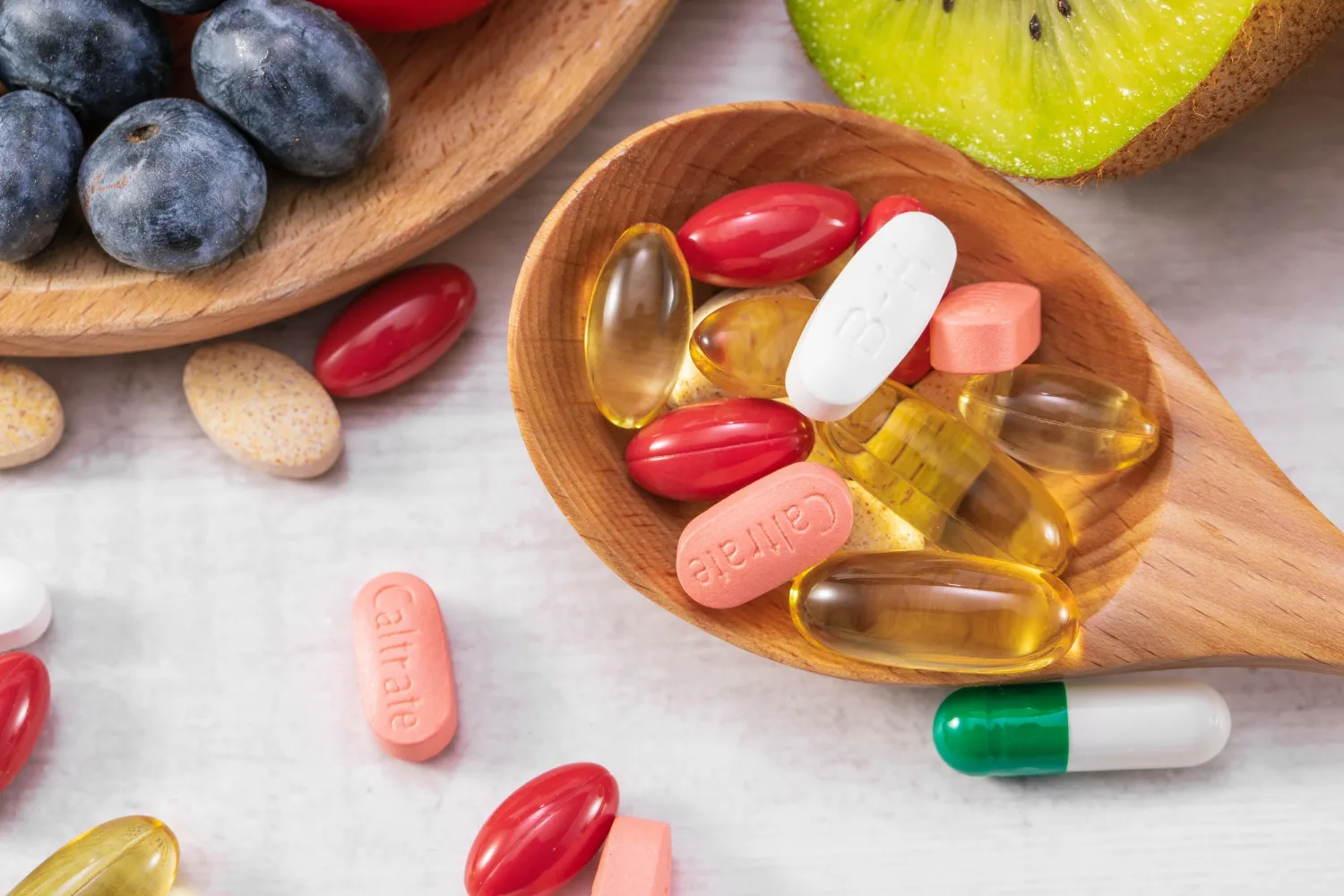Are Probiotics And Vitamin Supplements Necessary During The Rainy Season?
Category: General medicine
The rainy season is one of the most refreshing times of the year, bringing greenery, cool breezes, and relief from the scorching heat. But along with these pleasant changes, it also brings health challenges. In India, the monsoon season is associated with a higher risk of infections, especially those related to digestion and immunity. Food and water contamination, humid air, and sudden weather changes create conditions where our body’s natural defense system can get weakened. This is when probiotics and vitamin supplements often become a topic of discussion. But are they really necessary for everyone, or should they only be taken in special cases? Let’s understand their importance in detail.
Why Immunity Drops in the Rainy Season
The rainy season is a time when disease-causing germs thrive. Humidity creates the perfect environment for bacteria, viruses, and fungi to multiply. Stagnant water becomes breeding grounds for mosquitoes that spread diseases like dengue and malaria. Moreover, contaminated street food and unclean drinking water can easily lead to stomach problems such as diarrhea, typhoid, and cholera. The frequent shift between warm and cool weather also confuses the body’s immune response. This constant fight against infections puts stress on the immune system, making us more vulnerable to seasonal illnesses. During this time, maintaining good hygiene, eating fresh home-cooked food, and supporting immunity through nutrition become especially important.
Understanding Probiotics and Their Benefits
Probiotics are often called “good bacteria,” and for good reason they help maintain the natural balance of microorganisms in your gut. A healthy gut supports digestion, nutrient absorption, and even immunity. When the balance of good and bad bacteria is disturbed such as after eating contaminated food or due to infections digestive problems like bloating, acidity, or loose motions can occur. Probiotics restore this balance and protect the digestive tract. They also help the body absorb essential nutrients more effectively. During monsoon, when the risk of foodborne infections is higher, probiotics act as a protective shield for the stomach. In India, natural probiotics such as curd, buttermilk, fermented rice batter (used for idli or dosa), and dhokla are easily available and affordable ways to support gut health.
Do You Need Probiotic Supplements?
For most healthy individuals, probiotic-rich foods are enough to maintain gut health. Regular consumption of curd, buttermilk, or other fermented dishes usually provides the good bacteria your body needs. However, certain situations may require probiotic supplements. For example, if you have recently taken antibiotics, your natural gut bacteria may be reduced, making supplements useful to restore balance. People who frequently suffer from indigestion, recurring diarrhea, or low immunity may also benefit from a doctor-recommended probiotic supplement. It’s important to note that there are different strains of probiotics for different health issues, and taking the wrong one may not help. This is why supplements should only be started after a healthcare professional’s advice to ensure the right type and dosage.
Understanding Vitamin Supplements in Monsoon
Vitamins are vital for overall health, but in the rainy season, some become particularly important for immunity and energy. Vitamin C helps the body fight infections by supporting white blood cell function. Vitamin D, which is mostly obtained from sunlight, may become insufficient due to cloudy days and reduced sun exposure, leading to tiredness or low immunity. Vitamin B complex plays a key role in keeping energy levels stable, supporting the nervous system, and maintaining a healthy metabolism. During monsoon, limited fresh fruit availability and changes in eating patterns can lead to lower intake of these essential vitamins. This is why supplements are sometimes recommended to maintain proper levels. However, whether or not you need them depends on your diet and individual health.
Do You Need Vitamin Supplements?
Vitamin supplements are not automatically necessary for everyone during the monsoon. If you regularly eat a variety of seasonal fruits, vegetables, pulses, and dairy products, you are likely getting enough vitamins naturally. But certain groups of people may require extra support. These include individuals who are often unwell, feel fatigued easily, have restricted diets, or have been diagnosed with a deficiency. For example, people with very low Vitamin D levels may need supplementation even outside the monsoon. Self-medicating with vitamins is not advisable, as excess intake can sometimes cause harm for example, too much Vitamin D can affect kidney function. A doctor can guide you with the right tests and dosage so that supplements benefit your health safely.
Natural Dietary Sources for Better Immunity
Nature provides plenty of immunity-boosting foods that are available in India during monsoon:
- Vitamin C: Amla, guava, oranges, lemon, sweet lime
- Vitamin D: Limited sun exposure on clear days, fortified milk, dairy
- Vitamin B: Whole grains, green leafy vegetables, eggs, pulses
- Probiotics: Fresh curd, buttermilk, fermented dishes like idli, dosa, dhokla
Apart from these, eating freshly cooked meals, avoiding oily street foods, washing vegetables thoroughly, and drinking boiled or filtered water can reduce your risk of illness. Staying hydrated is equally important, even though thirst may be less in cooler weather.
Conclusion
Probiotics and vitamin supplements can be valuable tools for maintaining health during the rainy season, especially for people prone to infections or deficiencies. However, they are not a necessity for everyone. A strong immune system can be supported through balanced nutrition, safe food practices, proper hygiene, and timely medical care. Supplements should only be taken after professional advice, ensuring they are needed and safe for your body. Taking care of your gut, eating seasonal produce, and being cautious about food and water safety are the best ways to stay healthy during monsoon.
FAQs
Q1. Are probiotics necessary during the monsoon?
Probiotics help maintain gut health and can reduce the risk of digestive infections, which are common in monsoon. For most healthy people, daily curd or buttermilk is enough, but those with frequent stomach issues may need supplements after a doctor’s recommendation.
Q2. Can I take vitamin supplements without a prescription?
It’s better to avoid taking supplements without medical advice. Too much of certain vitamins can harm your health. A doctor can check your levels and prescribe only what is required for your condition.
Q3. What are natural sources of probiotics?
Curd, buttermilk, fermented rice batter (idli, dosa), dhokla, and homemade pickles are good natural sources of probiotics in India. These are safe for regular consumption and support digestion.
Q4. Which vitamins are most important during the rainy season?
Vitamin C boosts immunity, Vitamin D supports bone and immune health, and Vitamin B complex keeps energy and metabolism balanced. These are particularly useful in monsoon.
Q5. How can I improve my immunity naturally?
Eat seasonal fruits, vegetables, pulses, and nuts, stay hydrated, get enough rest, and maintain hygiene. Regular light exercise and stress management also help strengthen immunity.
Q6. Can supplements replace a healthy diet?
No, supplements cannot replace the nutrition you get from fresh, natural foods. They are only meant to fill nutritional gaps if your diet alone is insufficient.
Q7. Is it safe for children to take probiotics?
Children can take probiotics if needed, but only in forms and doses suitable for their age. Always consult a pediatrician before giving probiotic supplements to kids.
Q8. Should elderly people take vitamin supplements in monsoon?
Elderly individuals may require supplements due to reduced nutrient absorption and lower immunity. However, dosage and type should be guided by a doctor after evaluating their health.
Q9. Do probiotics help in preventing cold and flu?
Probiotics strengthen gut health, which supports the immune system. While they can help reduce the frequency of colds, they do not guarantee complete prevention of cold or flu.
Q10. How do I know if I need supplements?
If you experience frequent illness, weakness, or fatigue, or if your diet lacks variety, a doctor can perform tests to check for deficiencies and suggest supplements if necessary.







